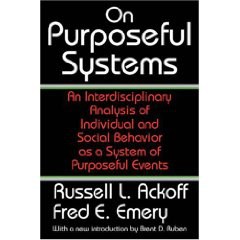

具体描述
Who is the devil you know?
Is it your lying, cheating ex-husband?
Your sadistic high school gym teacher?
Your boss who loves to humiliate people in meetings?
The colleague who stole your idea and passed it off as her own?
In the pages of The Sociopath Next Door , you will realize that your ex was not just misunderstood. He’s a sociopath. And your boss, teacher, and colleague? They may be sociopaths too.
We are accustomed to think of sociopaths as violent criminals, but in The Sociopath Next Door , Harvard psychologist Martha Stout reveals that a shocking 4 percent of ordinary people—one in twenty-five—has an often undetected mental disorder, the chief symptom of which is that that person possesses no conscience. He or she has no ability whatsoever to feel shame, guilt, or remorse. One in twenty-five everyday Americans, therefore, is secretly a sociopath. They could be your colleague, your neighbor, even family. And they can do literally anything at all and feel absolutely no guilt.
How do we recognize the remorseless? One of their chief characteristics is a kind of glow or charisma that makes sociopaths more charming or interesting than the other people around them. They’re more spontaneous, more intense, more complex, or even sexier than everyone else, making them tricky to identify and leaving us easily seduced. Fundamentally, sociopaths are different because they cannot love. Sociopaths learn early on to show sham emotion, but underneath they are indifferent to others’ suffering. They live to dominate and thrill to win.
The fact is, we all almost certainly know at least one or more sociopaths already. Part of the urgency in reading The Sociopath Next Door is the moment when we suddenly recognize that someone we know—someone we worked for, or were involved with, or voted for—is a sociopath. But what do we do with that knowledge? To arm us against the sociopath, Dr. Stout teaches us to question authority, suspect flattery, and beware the pity play. Above all, she writes, when a sociopath is beckoning, do not join the game.
It is the ruthless versus the rest of us, and The Sociopath Next Door will show you how to recognize and defeat the devil you know.
作者简介
玛莎·斯托特博士(Martha Stout, Ph.D.)
美国知名临床精神病学专家,任职于哈佛大学医学院,曾在著名的麦克莱恩精神专科医院(McLean Hospital)接受专业训练。
斯托特博士拥有多部著作,被福克斯新闻、美国公共广播电台、KABC电台及其他许多广播节目介绍和报道过。
目录信息
读后感
最近接连发生的多起伤害儿童事件令我们触目惊心,人们不禁要问:这是为什么?这些人到底怎么了?的确,在普通人、善良的人眼里,完全出于个人原因,不是泄愤于特定对象,而是迁怒无辜,报复社会,疯狂行凶的行为是不可想象的,似乎只是惊悚电影中的特定情节。但郑民生们告诉人...
评分 评分罗伯特·黑尔写道:“很多人都很难应付精神病态者强烈的、不带感情的或‘掠食性动物’般的凝视。” 反社会人格者想要的是控制他人,也就是要赢,这比其他任何成就(或其他任何人)都更令他们着迷。 控制他人的终极形式也许是夺走那个人的生命,当我们想到反社会人格障碍的反常...
评分 评分从封面看就那么吸引人~~ 打开看到内文就觉得并深深的吸引了“好人如何好,坏人如何坏,好人应该如何保护自己不受坏人的伤害” 恩!!这点很重要!
用户评价
Sensational, poorly researched, and trite but chilling.
评分Sensational, poorly researched, and trite but chilling.
评分Sensational, poorly researched, and trite but chilling.
评分Sensational, poorly researched, and trite but chilling.
评分Sensational, poorly researched, and trite but chilling.
相关图书
本站所有内容均为互联网搜索引擎提供的公开搜索信息,本站不存储任何数据与内容,任何内容与数据均与本站无关,如有需要请联系相关搜索引擎包括但不限于百度,google,bing,sogou 等
© 2026 book.quotespace.org All Rights Reserved. 小美书屋 版权所有




















